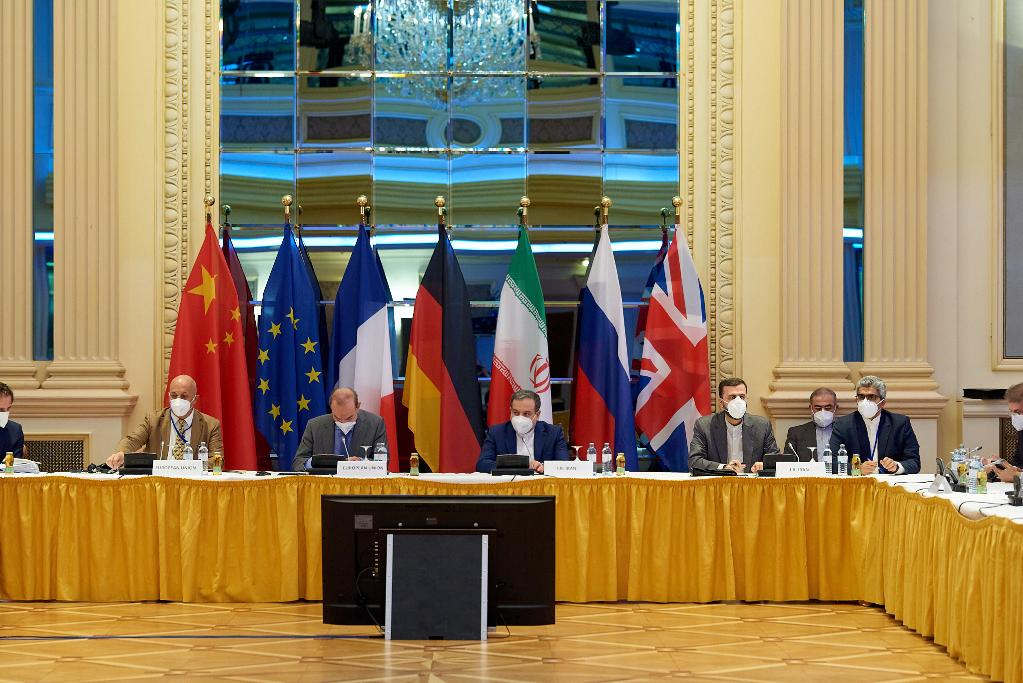Xinhua News Agency, Tehran, September 21st: Talk about "America can’t be trusted" in the eyes of Iranians.
Xinhua News Agency reporter Gao Wencheng
Iranian President Leahy made it clear in an interview with the American media a few days ago: "We can’t trust the United States." This sentence is not only his personal opinion, but also the consensus of Iranian society. From a government spokesman to an ordinary librarian, Iranian society now widely believes that — — "the United States cannot be trusted."
The formation of this social consensus is closely related to the United States’ treachery and arrogance on the comprehensive agreement on the Iranian nuclear issue. In July 2015, after 10 years of arduous negotiations, Iran reached the the Iranian nuclear deal with the United States, Britain, France, Russia, China and Germany. However, in 2018, despite the opposition of the international community, the United States unilaterally withdrew from the Iranian nuclear deal and once again held high the sanctions stick to "exert extreme pressure" on Iran.

This is the scene of the new round of political director-level meeting of the Joint Committee of the Iranian Nuclear Comprehensive Agreement, which was filmed in Vienna, Austria on June 12, 2021. Xinhua News Agency (Photo courtesy of the EU delegation in Vienna)
The United States’ wanton breach of contract and indiscriminate sanctions have caused great harm to Iran’s development. After the Iranian nuclear deal was reached, the United States lifted sanctions against Iraq, and Iran’s daily average oil export once reached 2.5 million barrels, with a record economic growth rate of 13.6%. However, after the United States unilaterally broke the contract and re-imposed sanctions, Iran’s oil exports once plummeted to only 100,000 barrels per day, and the economy shrank sharply year after year.
Affected by US sanctions, the Iranian currency Rial has depreciated sharply in just a few years. Before the sanctions were restarted, more than 30,000 rials could be exchanged for 1 US dollar, but now it takes 30 Wan Li rials to exchange for 1 US dollar. The import and production costs of Iranian goods have increased significantly, and the shortage of materials has led to soaring prices and difficult people’s livelihood. Since 2018, the overall price in Iran has increased by about 85%, and food prices have doubled. Many Iranian families can’t make ends meet, and their lives are very tight. During the Chinese New Year, many Iranian children can’t put on new clothes, and many housewives have to think about buying a piece of meat for half a day.
The pain of people’s livelihood has caused Iranians to pay close attention to the Iranian nuclear talks and look forward to the early lifting of sanctions. However, the indirect negotiations between Iran and the United States on the Iranian nuclear deal’s resumption of performance have been going on for nearly a year and a half, with ups and downs in the middle, and no results have been achieved so far. The current U.S. government said one thing and did another. Although it verbally expressed its willingness to return to the Iranian nuclear deal, it inherited the previous government’s policy of "extreme pressure" on Iraq, and even during the negotiations, it continued to raise the threat tone and increase the sanctions against Iraq.
The current American government’s words and deeds are different, which has deepened the Iranian society’s cognition that "the United States cannot be trusted." Leahy said that if Americans want to reach an agreement, "why should they impose new sanctions on Iran during the negotiation?" Because the United States reneges on its word and has a bad track record, Iran is now very cautious in negotiations. The Iranian side has repeatedly asked the US to make a guarantee that it will not violate the contract again. Mohammad Marandi, consultant of the Iranian negotiating team, made it clear that Iran believes that corresponding provisions should be set, and if the United States breaches the contract again, it must pay the price.
Iranian society believes that "the United States cannot be trusted" is a silhouette of the increasing bankruptcy of American national credibility in the international arena. A number of polls show that the global influence of the United States is generally declining. In order to safeguard hegemonic self-interest, the United States has repeatedly broken the contract and "retired from the group" and provoked conflicts and confrontations. Although the United States often pretends to be so-called "democracy" and "human rights", it is hard to hide the evil consequences of its perverse actions on other countries and even the whole international community.